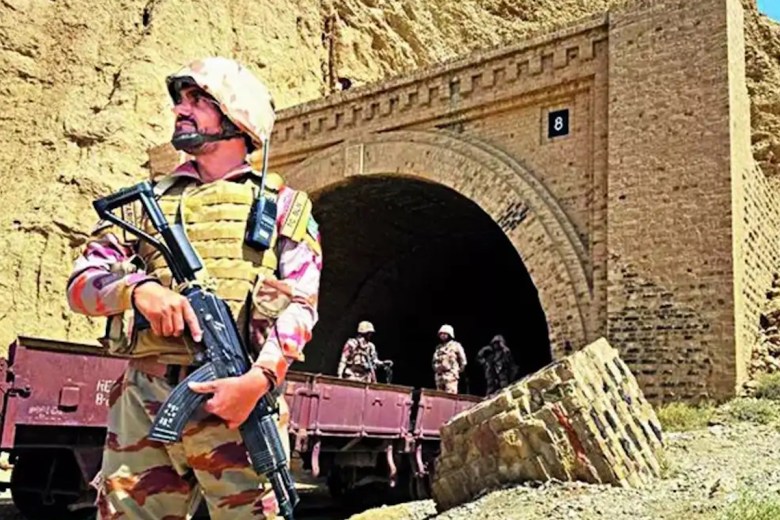Politics
US and Pakistan Forge New Economic Partnerships in Minerals

The alliance between the United States and Pakistan is entering a transformative phase, shifting from a focus on security cooperation and development aid to a more dynamic collaboration centered around critical minerals and economic growth. This change was underscored last month when US President Donald Trump highlighted the importance of enhancing cooperation with Pakistan on strategic minerals, which he referred to as a “strategic priority” for both nations. This announcement coincided with escalating tensions surrounding China’s restrictions on rare earth exports, accentuating the urgency of diversifying global supply chains.
The recalibration of Washington’s trade policies has presented Pakistan with unique advantages. Currently, the country benefits from a 19% tariff on imported goods, significantly lower than the 50% tariffs imposed on its regional competitor, India. Despite its vast mineral reserves, Pakistan’s mining sector contributes only 3.2% to its GDP and less than 0.1% to global exports. The government is now keenly focused on unlocking this potential.
One of the most promising sites is Reko Diq, located in southwestern Balochistan, which is believed to hold approximately 5.9 billion tons of ore, making it one of the largest undeveloped copper-gold deposits in the world. Barrick Gold, a major stakeholder in the project, has described it as a significant asset that could stimulate regional industrial growth and economic confidence.
In a recent briefing, US intelligence agencies informed President Trump that Pakistan’s rare earth mineral deposits could be valued between $4 trillion and $5 trillion. These reserves, largely found in Khyber Pakhtunkhwa and Balochistan, position Pakistan as a key player in the global rare earth market, essential for high-tech industries.
Strengthening Bilateral Ties
In September, officials from the United States and Pakistan formalized their commitment to collaboration by signing a memorandum of understanding (MoU) focused on critical minerals. The agreement, signed by Zach Harkenrider, acting deputy chief of the US Embassy in Islamabad, and representatives from the Missouri-based US Strategic Metals (USSM), represents a significant step towards enhancing bilateral relations. US Charge d’Affaires Natalie Baker characterized the MoU as a demonstration of the growing strength of the US-Pakistan relationship, emphasizing the mutual benefits of such agreements.
Baker also noted that the Trump administration prioritizes these kinds of deals due to the importance of critical mineral resources for American security and economic prosperity. USSM is focused on the production and recycling of minerals deemed vital for manufacturing and energy production, reflecting a strategic alignment with Pakistan’s interests.
To further bolster this partnership, the United States announced a $500 million investment through USSM, while Pakistan is actively seeking to attract American investment in its oil and gas sector. Trump’s acknowledgment of Pakistan’s “massive oil reserves” signals a renewed interest in diversifying economic engagement.
A New Era of Cooperation
Despite a history marked by fluctuating security ties, the two nations are now fostering deeper economic relations. A recent meeting between Prime Minister Shehbaz Sharif and Trump, alongside army chief Field Marshal General Asim Munir, showcased a new spirit of cooperation. Pakistan attributes its improved relations partly to Trump’s role in resolving a four-day conflict with India in May 2025, even nominating him for a Nobel Peace Prize for his diplomatic efforts.
To capitalize on this renewed trust, Pakistan’s Finance Minister Muhammad Aurangzeb announced plans to host an investment conference at the end of October aimed at attracting American investors. He stated, “We are very clear where we seek their investment and where we see a clear investment appetite.” This initiative represents Pakistan’s commitment to breaking free from the economic cycles that have historically plagued it.
Having narrowly avoided default in 2023 with assistance from the International Monetary Fund (IMF), Pakistan is now working to stabilize its economy under a $7 billion IMF loan program. The government aims to transform this stabilization into sustainable growth through a focus on exports, mineral development, and foreign direct investment.
In summary, the evolving relationship between the United States and Pakistan illustrates a strategic convergence of interests, moving from military alliances to critical mineral and energy partnerships. If effectively managed, this collaboration could not only revitalize Pakistan’s economy but also establish it as a significant player in the global race for strategic resources, potentially redefining future US-Pakistan relations.
-

 Lifestyle5 months ago
Lifestyle5 months agoHumanism Camp Engages 250 Youths in Summer Fest 2025
-

 Business5 months ago
Business5 months agoKenvue Dismisses CEO Thibaut Mongon as Strategic Review Advances
-

 Sports5 months ago
Sports5 months agoDe Minaur Triumphs at Washington Open After Thrilling Comeback
-

 World3 months ago
World3 months agoSouth Korea’s Foreign Minister Cho Hyun to Visit China This Week
-

 Sports5 months ago
Sports5 months agoTupou and Daugunu Join First Nations Squad for Lions Clash
-

 Top Stories5 months ago
Top Stories5 months agoColombian Senator Miguel Uribe Shows Signs of Recovery After Attack
-

 World5 months ago
World5 months agoASEAN Gears Up for Historic Joint Meeting of Foreign and Economic Ministers
-

 Health5 months ago
Health5 months agoNew Study Challenges Assumptions About Aging and Inflammation
-

 Business3 months ago
Business3 months agoStarling Bank Plans Secondary Share Sale, Targeting $5.4 Billion Valuation
-

 Business5 months ago
Business5 months agoOil Prices Surge Following New EU Sanctions on Russia
-

 Entertainment5 months ago
Entertainment5 months agoDetaşe-Sabah Violin Ensemble Captivates at Gabala Music Festival
-

 Entertainment5 months ago
Entertainment5 months agoBaku Metro Extends Hours for Justin Timberlake Concert









